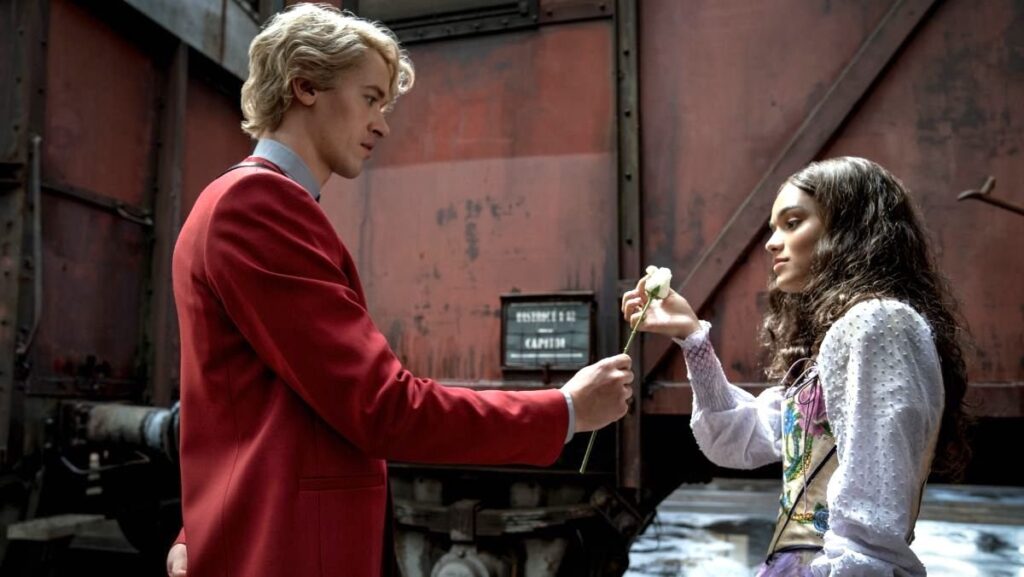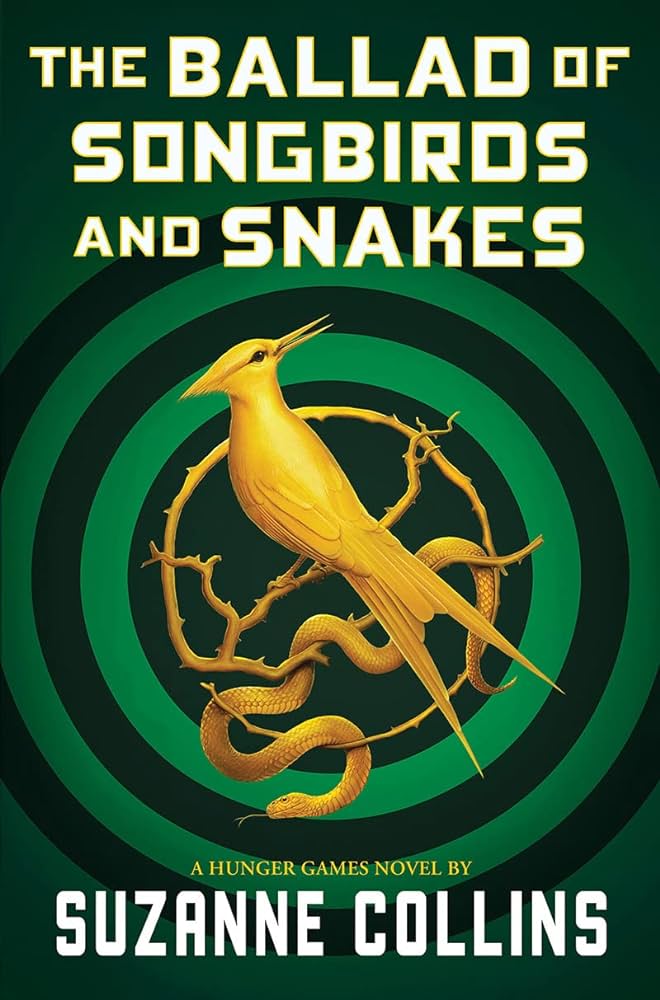“Well, as they said, it’s not over until the mockingjay sings.”
In a successful and captivating return to Panem, The Ballad of Songbirds and Snakes by Suzanne Collins, was the most remarkable thing to happen for the Hunger Games series.
Taking place 64 years before the Mockingjay– Katniss Everdeen– became leader of the Rebellion against the Capital, the novel showcases the year of the 10th annual Hunger Games. Just as in the original trilogy, 2 tributes, a boy and a girl, from ages 12-18 are randomly picked from each of the 12 Districts to be taken to the custody of the Capital and fight to the death until one victor remains. The only difference is that the games are relatively new and the Capital citizens do not want to tune in to watch.
The main protagonist is Coriolanus Snow, the main antagonist in the original Hunger Games trilogy, who attends the Academy as a student in his final year. Before graduation, his teachers and main antagonists, Head Gamemaker Dr. Gaul, and morphling addict creator of the Hunger Games, Dean Casca Highbottom, give the 24 top students in the class a chance to win a prize through a new mentorship program. They are looking for ways to get the Capital citizens interested in the games and propose assigning each student to one tribute to make the games more interesting. Their task is to turn the tributes into characters of performance and personality, not just children sentenced to death.
Coriolanus Snow faces a challenge in protecting the Snow family name and is the last hope in bringing his family back to power. He is driven by a power-hungry desperation to win the mentorship prize and secure his future. What he didn’t expect was to get assigned the District 12 girl who has no chance of winning compared to the other tributes.
The tribute, Lucy Gray Baird, is a character that we have never seen before in the franchise. She is the complete opposite of Katniss in that she is not a fighter, but a performer. She wears a bright rainbow dress, sings, and plays the guitar. Coriolanus becomes conflicted with her character as she stands out to him as someone he’s never seen before, and someone he comes to love, yet threatens everything in his rise to power.

Reading from the perspective of an antagonist and knowing what they will become is a big challenge as no one wants to support him, yet the way Suzanne Collins writes his character makes the reader at times sympathize with him and root for him. We sometimes almost forget the person he becomes because of the effect that characters like his cousin, Tigris Snow, tribute, Lucy Gray, and friend, Sejanus Plinth have on bringing the best out of him.
I’ve seen mixed reviews of this novel, and it won’t be for everyone, but I believe that this is the best book from the Hunger Games series. It is completely different from the original trilogy with a weakened Capital and society recovering from war. There is no glamor and the Capital luxury of the original trilogy, but the decisions of the characters and the future of the games form the roots of the Capital’s growth. Alongside the rising Capital are the seeds of rebellion and the music of the songbirds that can’t be silenced.
The juxtaposition of the songbird and the snake takes effect in Lucy Gray and Coriolanus which creates a symbolic representation of these two characters throughout the novel. A bird who will never give up an opportunity to sing a song, and a serpent that lays dormant until it lashes out. The themes of loyalty and power play throughout the novel and play a critical role in watching Coriolanus develop as a character that completely falls into control.
The most intriguing part of the novel was Coriolanus’ inner monologues. Being able to see his thought process before he acts vividly shows the complexity of his character and the internal conflict he has within himself about his morals of what is right and what isn’t. He also speaks with a cunning tone, like the sinister snake he comes to represent.
The relationship between Coriolanus and Lucy Gray is mischievous as their interactions come with many counts of mistrust and even deception. Throughout the novel, their conversations almost sound like secret diatribes where they don’t want the other to see their true intentions. Even reading from Snow’s perspective, we understand what Lucy Gray says at times when Coriolanus does not which I also believe reflects his judgment and refusal to be driven by love.
Through the hopeless fate bound to occur, a beautiful aspect of this story is introduced as hope in the dark: music. The ballads of Lucy Gray and the voice of love, freedom, and flight completely contrast Coriolanus and his wrath. The music that she sings and her lyrics give the reader a sense of hope and a lightheartedness to the heavy subject of the Hunger Games. A rebel in the making captures the snake and leaves him with the decision to bite.
Check out the teaser trailer for the motion picture adaptation of the novel:
Disclaimer: The R-Hi does not endorse any book or film. Viewer discretion is advised.
Featured image credit: Collins, Suzanne: Books
